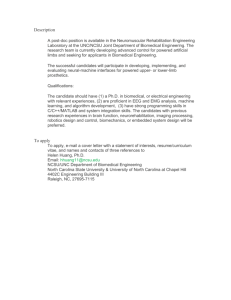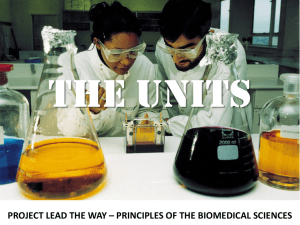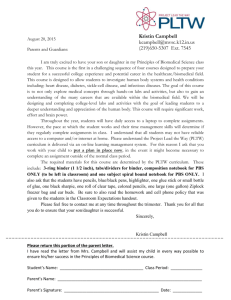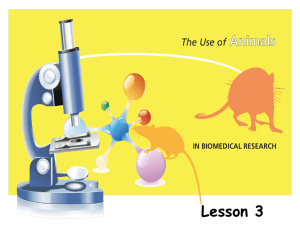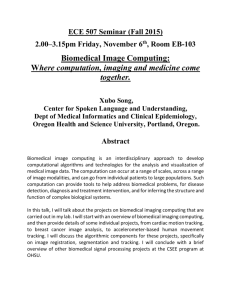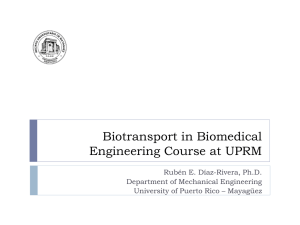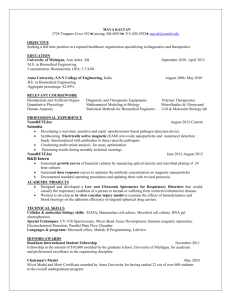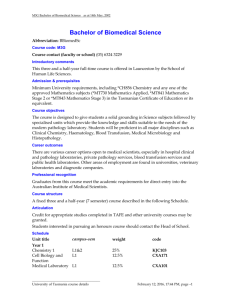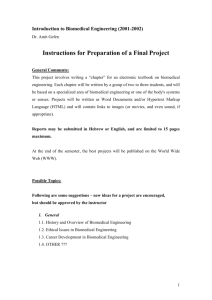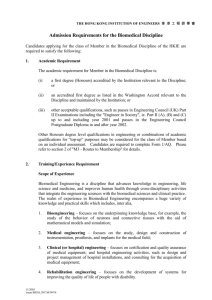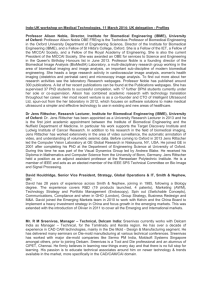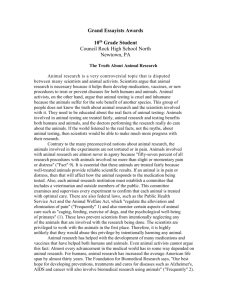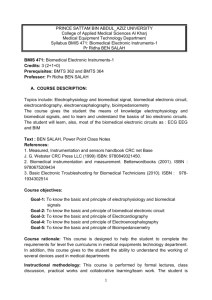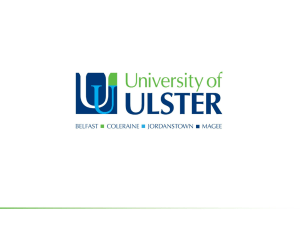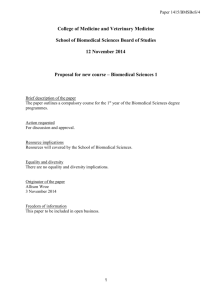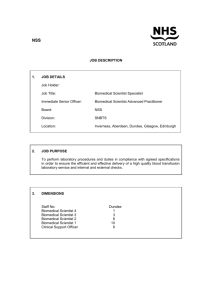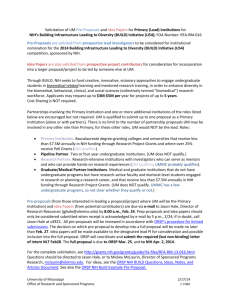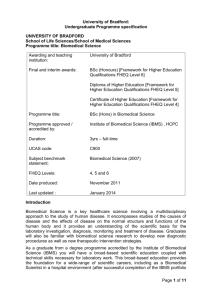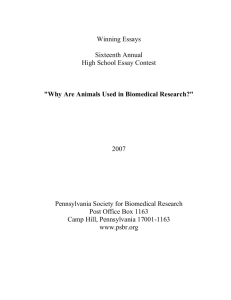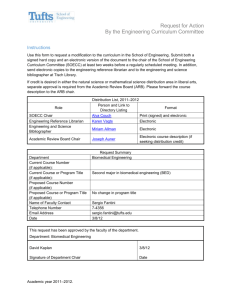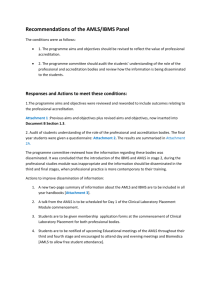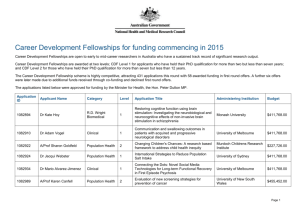What are Biomedical Scientists?
advertisement
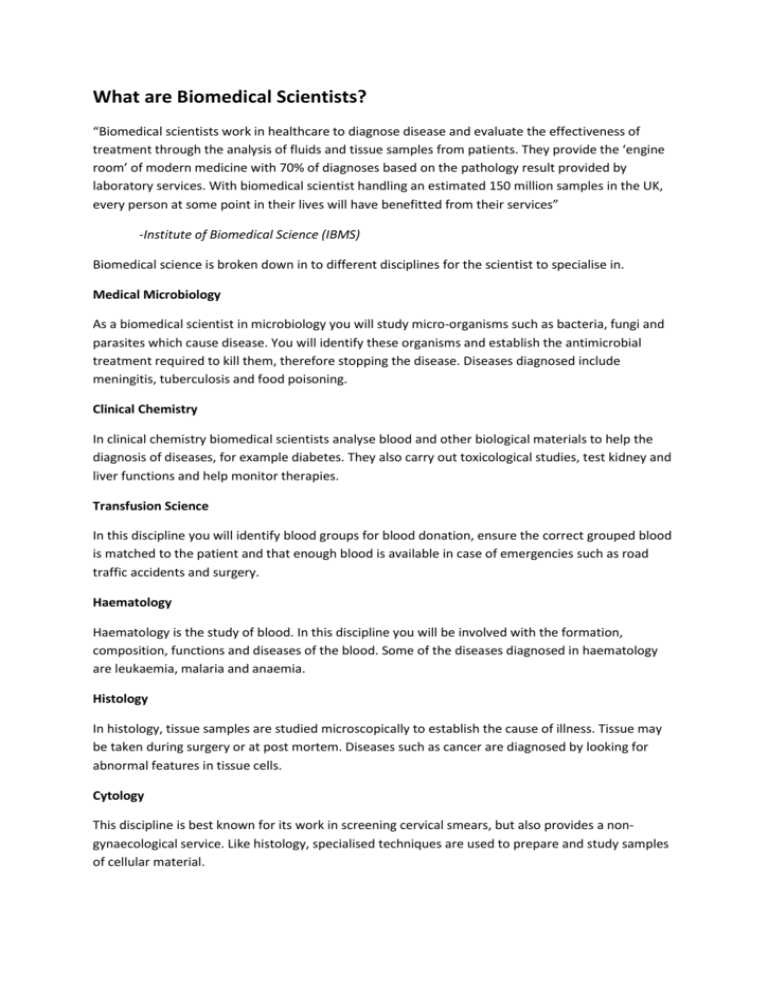
What are Biomedical Scientists? “Biomedical scientists work in healthcare to diagnose disease and evaluate the effectiveness of treatment through the analysis of fluids and tissue samples from patients. They provide the ‘engine room’ of modern medicine with 70% of diagnoses based on the pathology result provided by laboratory services. With biomedical scientist handling an estimated 150 million samples in the UK, every person at some point in their lives will have benefitted from their services” -Institute of Biomedical Science (IBMS) Biomedical science is broken down in to different disciplines for the scientist to specialise in. Medical Microbiology As a biomedical scientist in microbiology you will study micro-organisms such as bacteria, fungi and parasites which cause disease. You will identify these organisms and establish the antimicrobial treatment required to kill them, therefore stopping the disease. Diseases diagnosed include meningitis, tuberculosis and food poisoning. Clinical Chemistry In clinical chemistry biomedical scientists analyse blood and other biological materials to help the diagnosis of diseases, for example diabetes. They also carry out toxicological studies, test kidney and liver functions and help monitor therapies. Transfusion Science In this discipline you will identify blood groups for blood donation, ensure the correct grouped blood is matched to the patient and that enough blood is available in case of emergencies such as road traffic accidents and surgery. Haematology Haematology is the study of blood. In this discipline you will be involved with the formation, composition, functions and diseases of the blood. Some of the diseases diagnosed in haematology are leukaemia, malaria and anaemia. Histology In histology, tissue samples are studied microscopically to establish the cause of illness. Tissue may be taken during surgery or at post mortem. Diseases such as cancer are diagnosed by looking for abnormal features in tissue cells. Cytology This discipline is best known for its work in screening cervical smears, but also provides a nongynaecological service. Like histology, specialised techniques are used to prepare and study samples of cellular material. Virology Virology is the study of viruses and the diseases caused by them such as German measles, HIV and chickenpox. The detection of viruses is performed using molecular techniques such as polymerase chain reaction (PCR) used to amplified DNA to a detectable level. Immunology This discipline includes conditions of the body’s immune system and its role in infectious diseases, parasitic infestations, allergies, tumour growth, tissue grafts and organ transplants. Other career opportunities with a Biomedical Science degree Public Health England (PHE) requires scientists for food and water testing to detect infectious diseases. Forensic Science, DNA profiling and performing forensic techniques. National Blood Authority providing support to hospital blood banks. Medical Research Council, carrying out research in the medical and biological sciences. Veterinary services. Health and Safety Executive (HSE). University laboratories. Pharmaceutical and product manufacturing. Her Majesty’s Forces Various government departments. For more information please visit www.ibms.org
